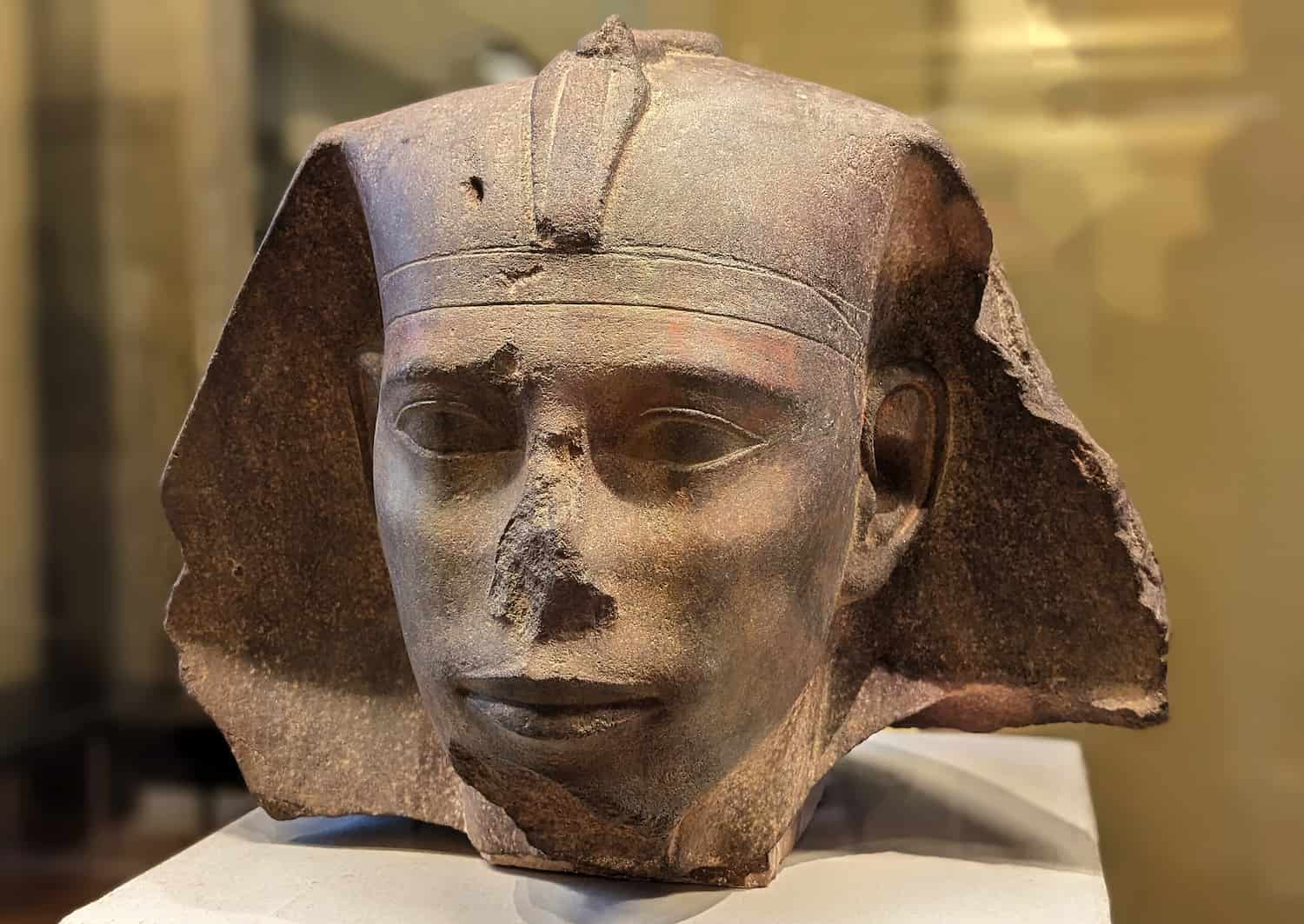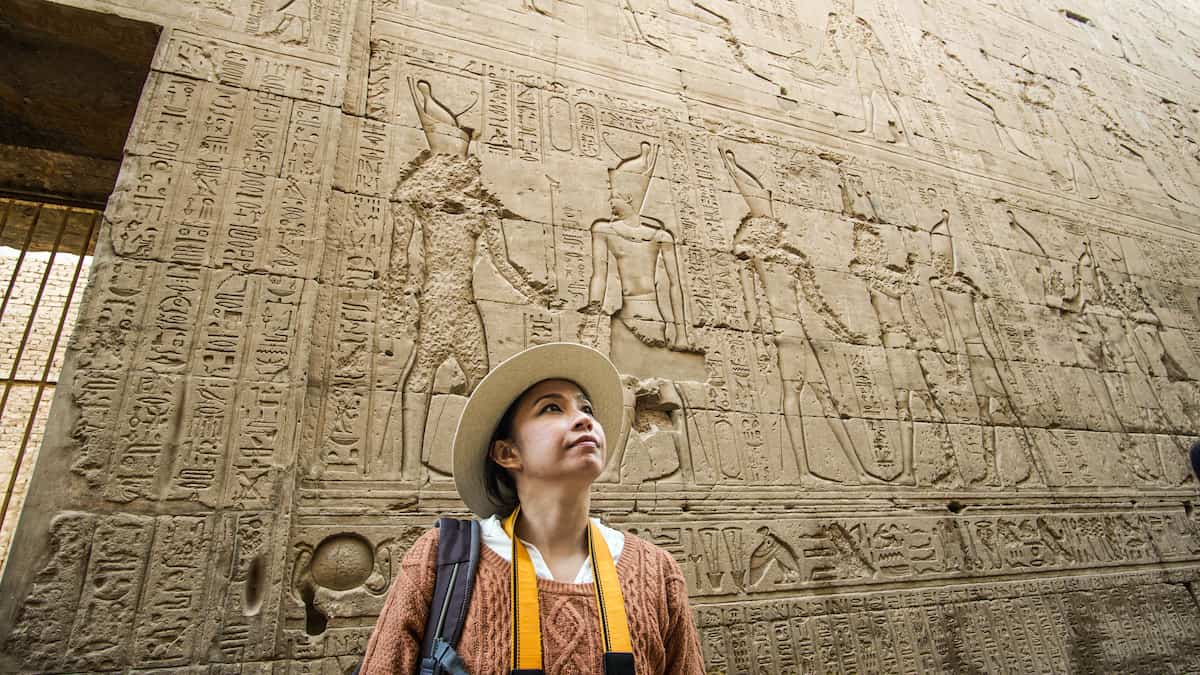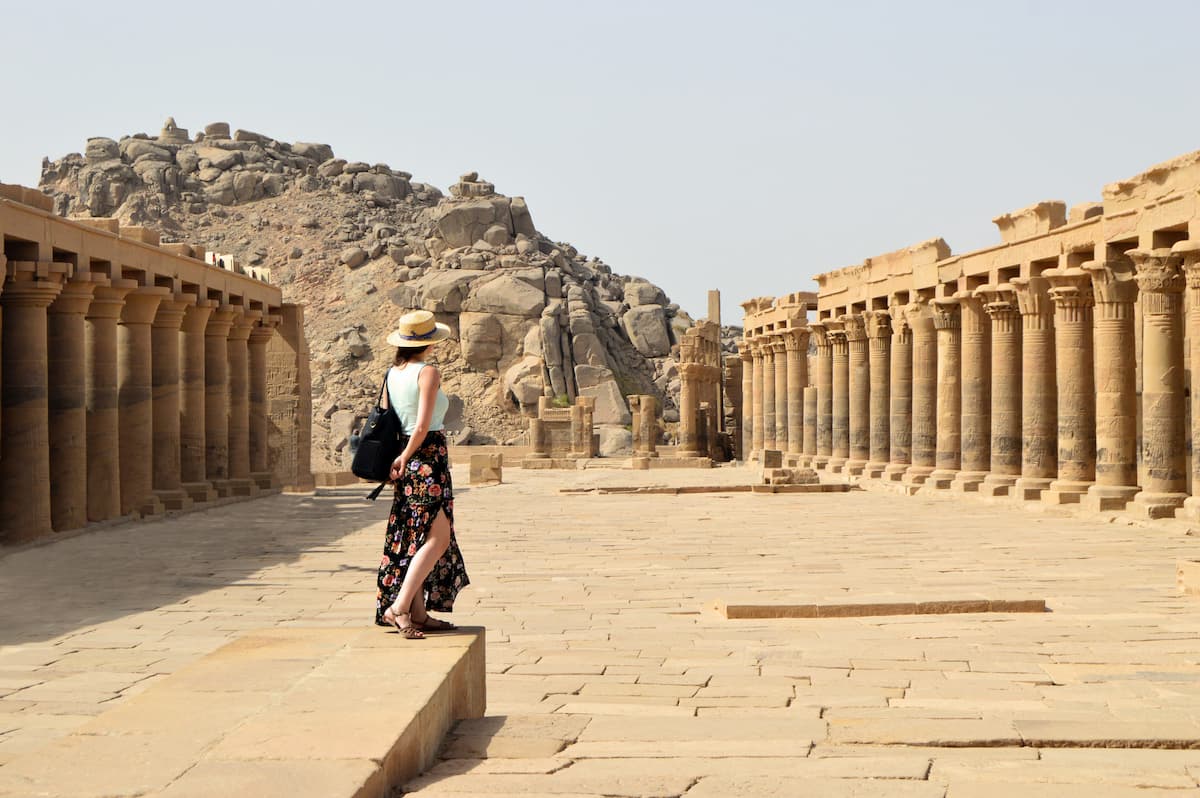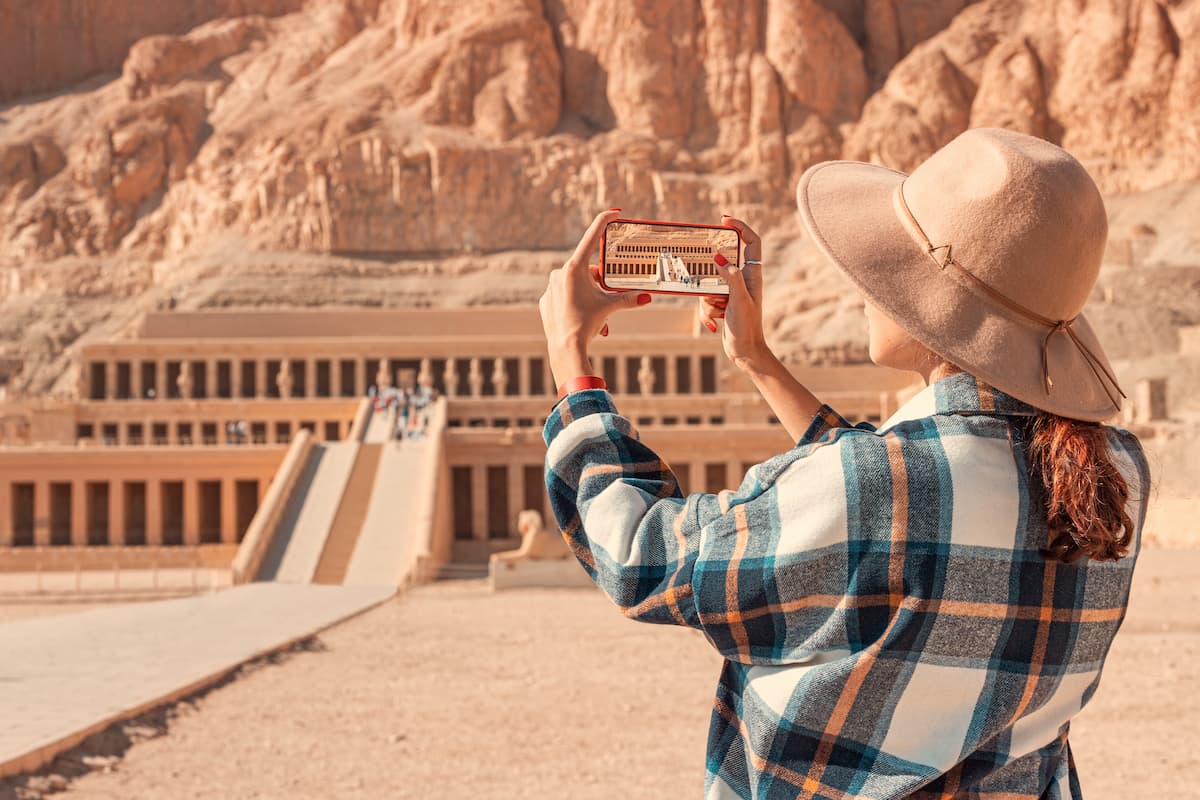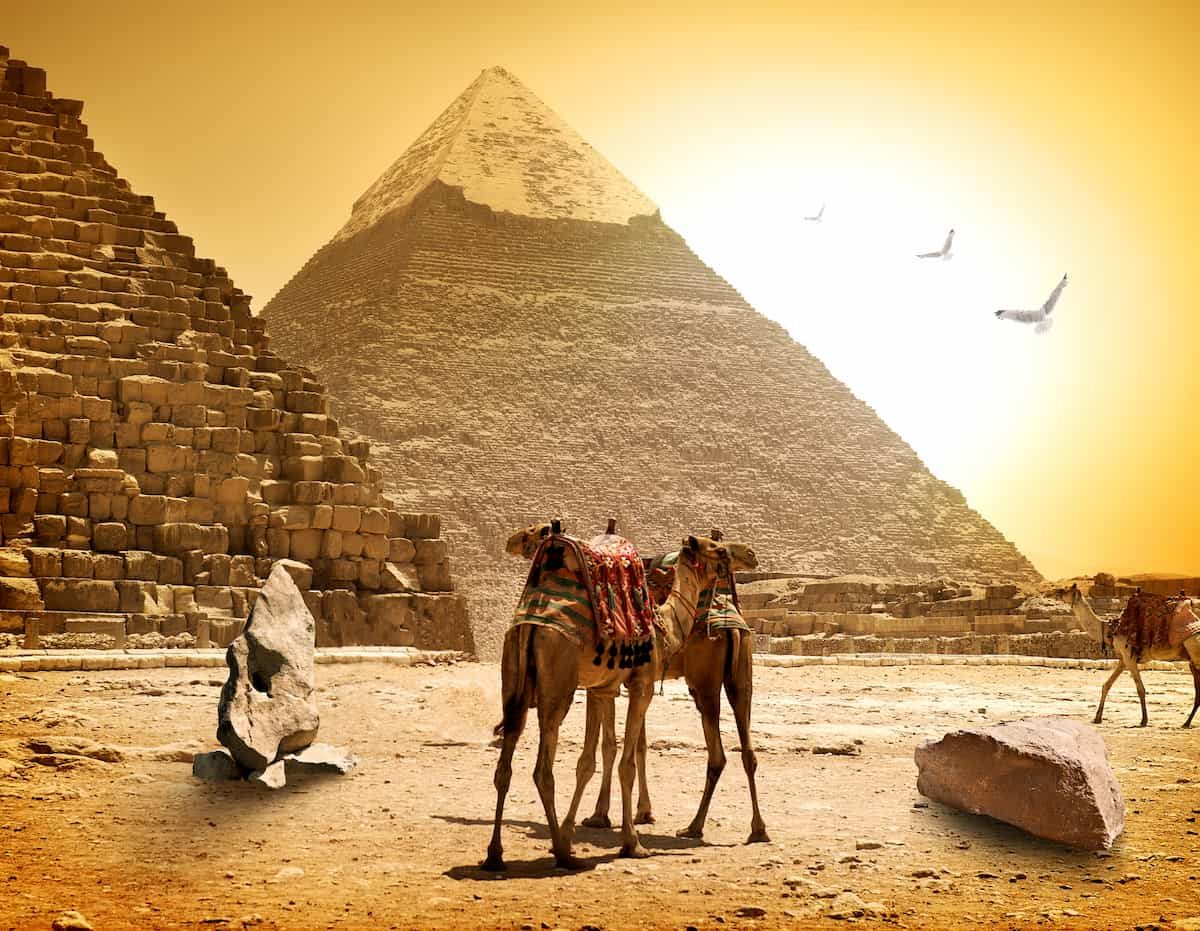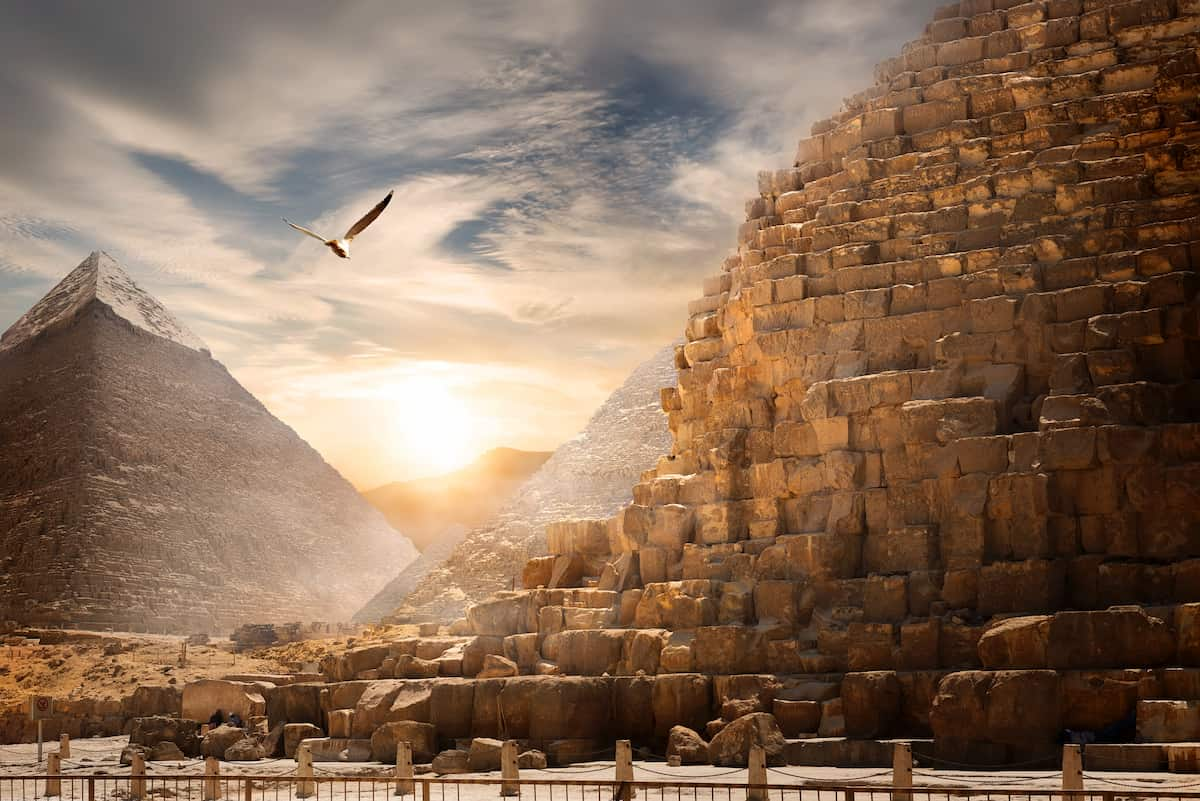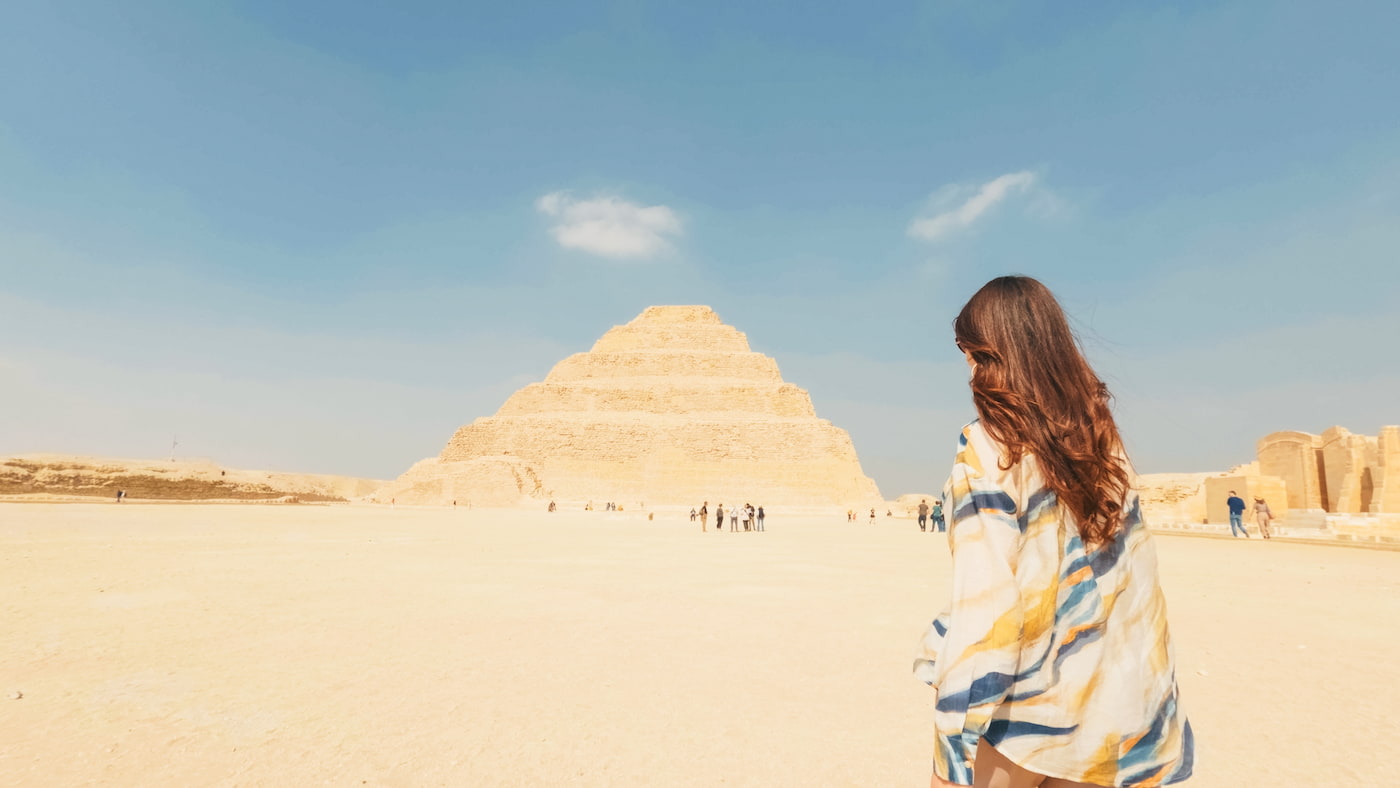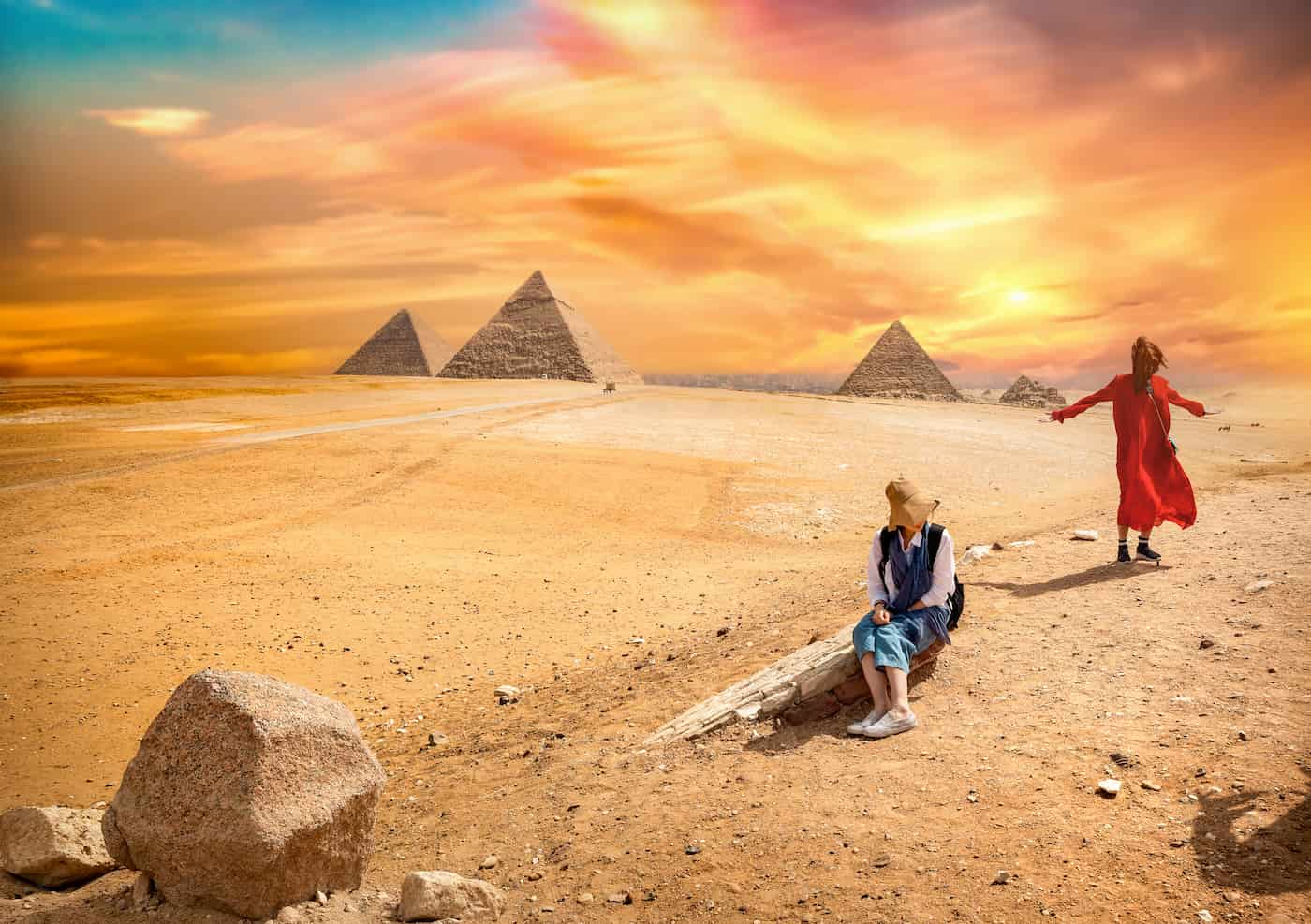Pharaoh Djedefre: His Life, Reign, and Mysteries
Djedefre is also known as Djedefra and Radjedef. He died c. 2558 BC. Djedefre was an ancient Egyptian king of the 4th Dynasty during the Old Kingdom. He is well known by the Hellenized form of his name, Rhatoisēs. Djedefre was the son and immediate successor to the throne of Khufu, the builder of the Great Pyramid of Giza. His mother is not known for certain. This king introduced the royal title Sa-Rê (meaning “Son of Ra”) and was the first to connect his cartouche name with the sun god Ra.
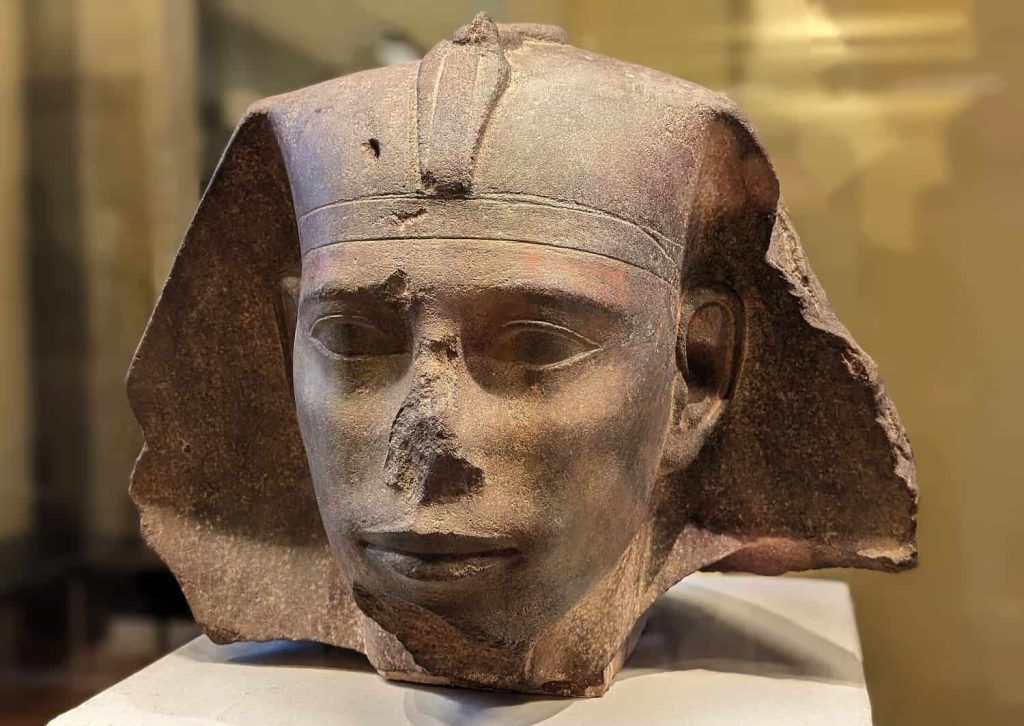
Djedefre sphinx
Djedefre Family and Children
Djedefre married Hetepheres II. She was his brother Kawab’s widow. She was a sister to both of them. His wife also married after Djedefre’s death, a third brother of theirs, Khafre. He also married another queen, Khentetka. Its name was from statue fragments in the Abu Rowash mortuary temple.
Children with Hetepheres II or Khentetka
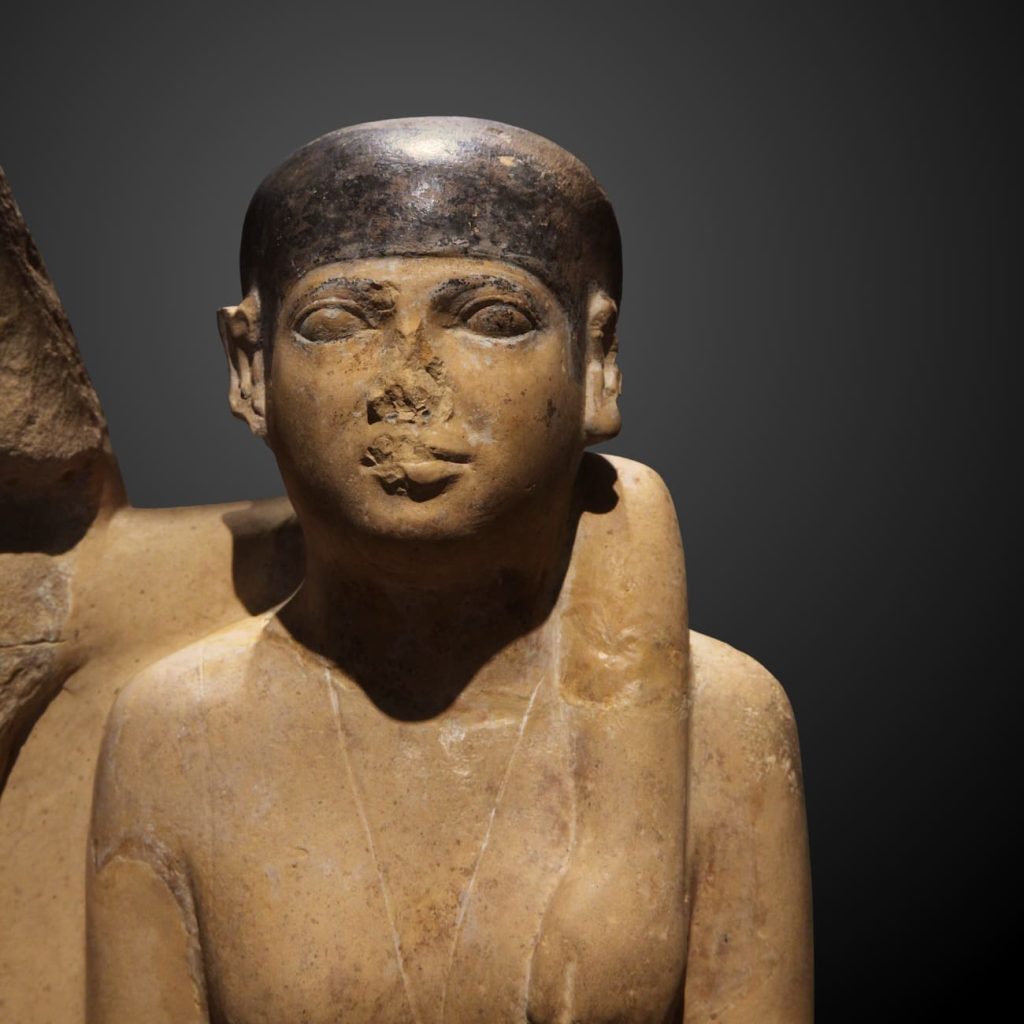
Hetepheres II
1- Horni was the Eldest King’s Son of His Body. He is known from a statue depicting him and his wife.
2- Setka was the Eldest King’s Son of His Body and the Unique Servant of the King. He was popular from a scribe statue that existed in his father’s pyramid complex. It is possible that he ruled for a short while after his father’s death.
A ruler whose name ends in ka, this could have been Setka or Baka, started an unfinished pyramid at Zawiyet el-Arian.
Children with Hetepheres II
1- Neferhetepes was the King’s Daughter of His Body and God’s Wife. She was popular from a statue fragment from Abu Rowash. Until recently, she was the mother of a pharaoh of the next dynasty, either Userkaf or Sahure.
Possible children with Hetepheres II or Khentetka
1- Baka was the Eldest King’s Son. He was popular from a statue base that existed in Djedefre’s mortuary temple, which depicts him with his wife Hetepheres. Maybe the same person as Bikheris. The French excavation team led by Michel Valloggia found the names of two other possible children of Djedefre in the pyramid complex.
2- Nikaudjedefre was the King’s Son of His Body. He was buried in Tomb F15 in Abu Rowash; it is possible that he wasn’t a son of Djedefre but lived later, and his title was only honorary.
3- Hetepheres was the King’s Daughter of His Body. Its name was on a statue fragment
The length Regin
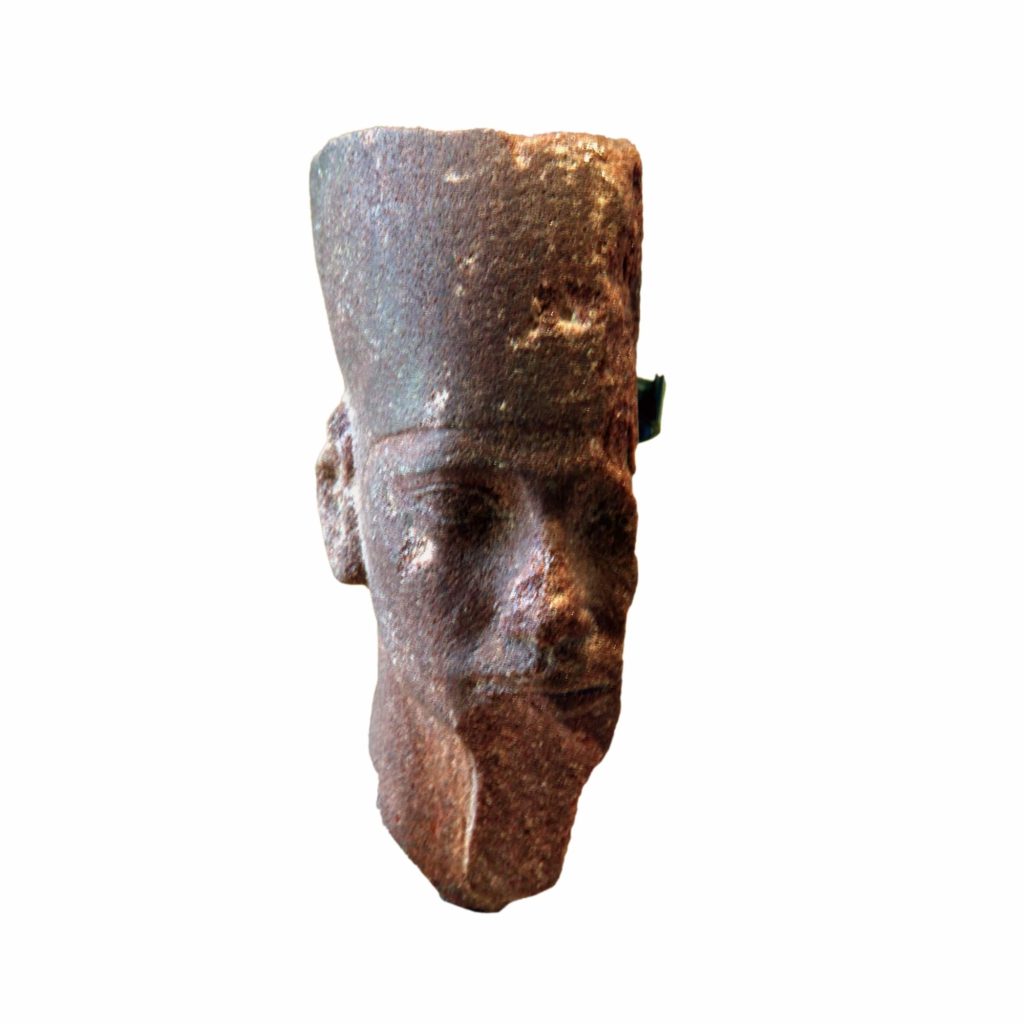
Djedefra wearing the crown of Lower Egypt
The length of Djedefre’s reign is disputed. Turin Kings List credits him with a rule of only eight years, but the year of his 11th cattle count was on the underside of one of the roofing blocks near Khufu’s Great Pyramid, which would give him a reign of at least eleven years if the count was annual.
Verner also notes that the French-Swiss team excavating Djedefre’s pyramid has discovered that this king’s pyramid was complete in his reign. According to Vallogia, Djedefre’s pyramid largely made use of a natural rock promontory, which represented around 45% of its core. The side of the pyramid was 200 cubits long, and its height was 125 cubits.
So, the original volume of the monument of Djedefre, hence, approximately equalled that of Menkaure’s pyramid. Therefore, the argument that Djedefre enjoyed a short reign because his pyramid was unfinished is untrue. This means that Djedefre likely ruled Egypt for a minimum of 11 years if the cattle count was annual, or 22 years if it was biennial. Also, Verner supports the shorter, 11-year reign and notes that “the relatively few monuments and records of Djedefra do not seem to favour a very long reign” for this king.
Egypt Standard Tours
Egypt United Tours, you may now pick from a wide choice of Egypt vacation packages that take you to explore the pharaonic heritage, the Giza Pyramids, the Nile River, and the Red Sea, as well as the Museum of Civilization.
The pyramid of Djedefre
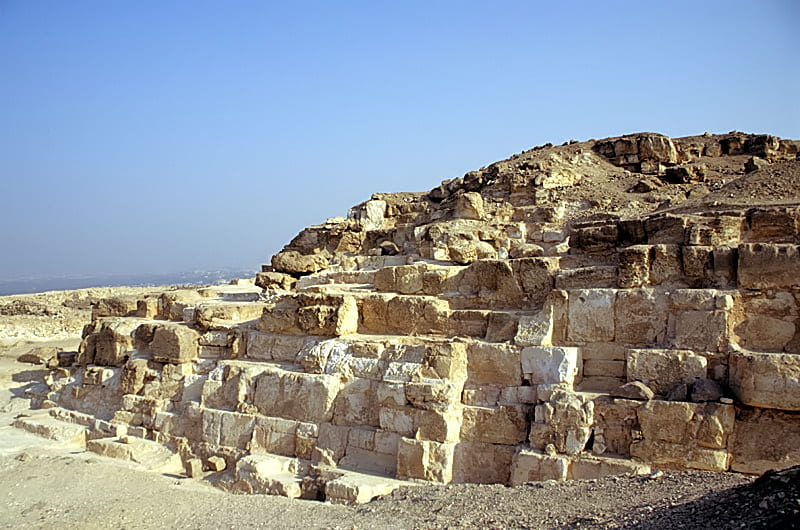
The Djedefre Pyramid
The pyramid of Djedefre is Egypt’s northernmost pyramid. Believed that Djedefre built it, the son and successor of King Khufu; it is today mostly ruins at Abu Rawash in Egypt. It is the northernmost part of the Memphite necropolis.
While Egyptologists previously assumed that his pyramid at this heavily denuded site was incomplete upon his death, more recent excavations from 1995 to 2005 have established that it was complete.
The most recent evidence indicates that its current state is the result of extensive plundering in later periods. The destruction started at the end of the New Kingdom at the latest, and was particularly intense during the Roman and early Christian eras when a Coptic monastery was in nearby Wadi Karin.
While “the king’s statues were damaged as late as the 2nd century AD. As a result of Djedefre’s pyramid being quarried for its stone, as such, there is little left standing today. Moreover, at the end of the nineteenth century, stone was still being hauled away at the rate of three hundred camel loads a day. During the last century, it was a military camp, and its proximity to Cairo exposed it to modern development.
How Tall is his Pyramid?
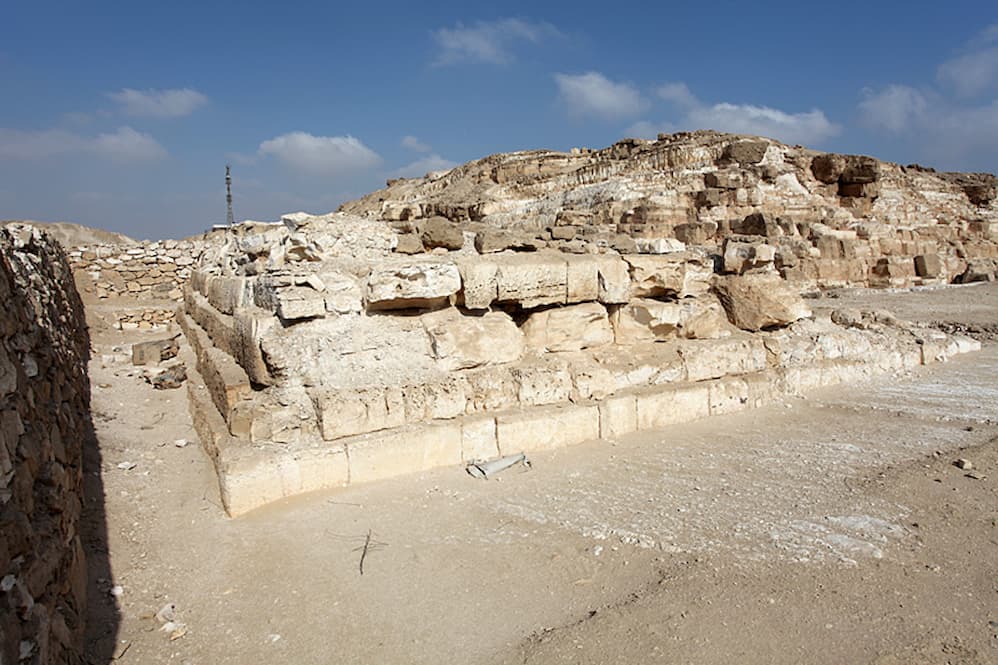
South-east corner of the Queens or Cult Pyramid, Djedefre pyramid
Sphinx in Djedefre Regin
Some believe that the sphinx of his wife, Hetepheres II, which was part of Djedefre’s pyramid complex, was the first sphinx. In 2004, the French Egyptologist Vassil Dobrev reported the evidence that Djedefre was responsible for the building of the Sphinx at Giza in the image of his father.
Due to the poor condition of Abu Rawash, there were only small traces of his mortuary complex. Some found only the rough ground plan of his mud brick mortuary temple, with difficulty in the usual place on the east face of the pyramid. His pyramid causeway proved to run from north to south rather than the more conventional east to west. No one has found Valley Temple.
The Importance of the Pyramid of Djedefre
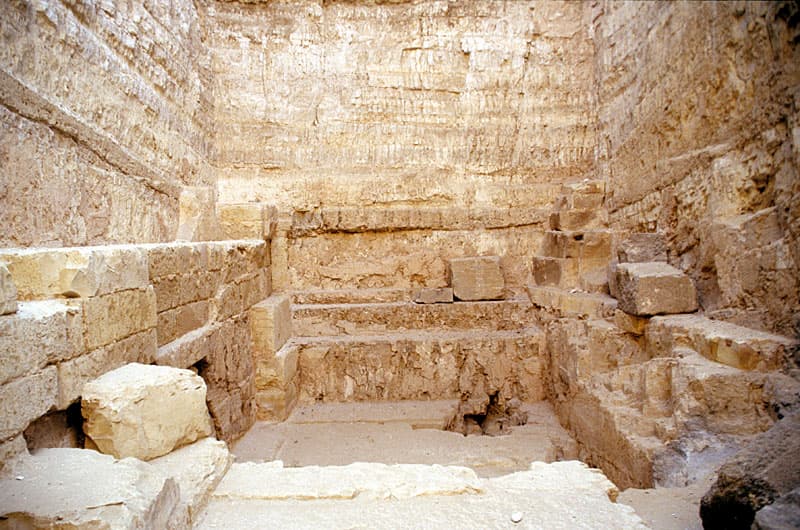
Pyramid of Djedefra Chamber
The Pyramid of Djedefre differs from other Fourth Dynasty pyramids. It had more height than any other pyramid for a very long time. The architecture of the pyramid consists of a smaller satellite pyramid to the east of the main pyramid and a temple.
The Pyramid of Djedefre’s internal inscriptions imply that a tomb was not its original use. Djedefre saw himself as the earthly manifestation of the deity Ra. So, it was a site of devotion for Ra.
Djedefre’s pyramid shows the Fourth Dynasty political and social environment in Ancient Egypt. Djedefre’s reign had many Political problems. He probably built his pyramid to establish the legitimacy of his rule and secure his place in the succession.
Conclusion
Djedefre was an ancient Egyptian pharaoh of the 4th Dynasty. He was famous because of building his pyramid complex at Abu Rawash instead of Giza. While some theories suggested his pyramid was incomplete, recent excavations indicate it was complete during his reign
The Djedefre Pyramid is a testament to the brilliance and inspiration of the Ancient Egyptians. In the wider view, despite its ruined state, it forms an age-old door into politics and into the technical and architectural excellence of a great civilization. The Pyramid of Djedefre, being one of the less famous Fourth Dynasty pyramids, warrants discovery.

